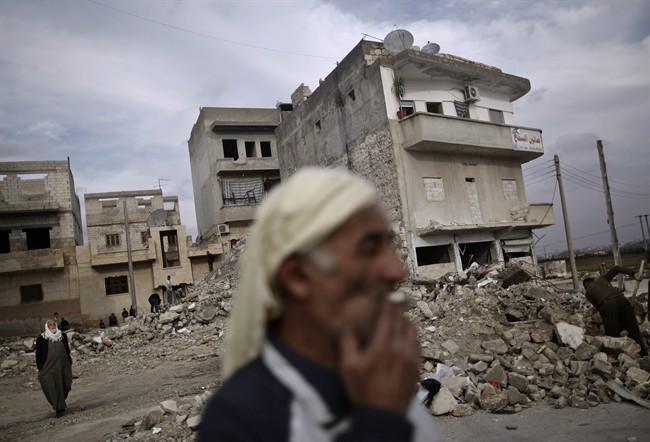The U.N.’s chief humanitarian official asked the Security Council to approve cross-border relief operations into Syria to deliver aid to millions suffering from the country’s civil war.

U.N. agency chiefs for humanitarian affairs, refugees, women in conflict, and children in conflict used the Security Council briefing to speak over the heads of the deadlocked council nations to appeal to the world for support.
The agency chiefs launched their campaign Monday with an op-ed in The New York Times that said, “There still seems to be an insufficient sense of urgency among the governments and parties that could put a stop to the cruelty and carnage in Syria.”
The Security Council has been stalemated for months on Syria. Western and Arab nations blame the conflict on President Bashar Assad’s government. Russia insists on assigning equal blame to the Syrian rebel opposition, and has cast vetoes, along with China, to block draft council resolutions.
The president of the council, Rwandan Ambassador Eugene Richard Gasana, late on Thursday read out a media statement saying that the council insists that “the escalating violence is completely unacceptable and must end immediately.”
It condemned human rights violations “by the Syrian authorities, as well as any human rights abuses by armed groups,” without naming the opposition Free Syrian Army. It also insisted that aid must be able to be provided without obstacles “including those which are bureaucratic in nature,” and “where appropriate, across borders.”
The statement was an “elements to the press” message – which is unenforceable, and on which the council members do not necessarily have to agree on language – only on the general sentiment. It ranks below even the usual unenforceable “press statements” issued by the council, and is so low-level it is rarely resorted to. It was the best the council could produce, and Gasana said even that had been “difficult.”
On Friday morning, the council returns to the Syrian crisis with a private briefing by the joint U.N.-Arab League envoy to Syria, Lakhdar Brahimi. He assumed the role last year after former U.N. chief Kofi Annan quit in frustration.
But Brahimi appears unable to budge Syria on a central issue of the peace process – the formation of a transition government that would not include Assad. Brahimi’s challenge is so difficult that Secretary-General Ban Ki-moon on Wednesday had to publicly dismiss speculation that Brahimi will resign from his post.
Human Rights Watch’s U.N. director, Philippe Bolopion, called for increased cross-border relief shipments “with or without Syria’s consent.”
But Syrian Ambassador Bashar Ja’afari stressed to the council “the exclusive responsibility of the Syrian government in protecting its citizens … in a way that safeguards its sovereignty.”
The U.N. High Commissioner for Refugees, AntDonio Guterres, warned the council that without an end to the fighting soon, almost half of Syria’s 20.8 million population could be in need of humanitarian help by the end of 2013.
Guterres said 400,000 refugees had fled Syria in the last seven weeks, bringing the population of Syrians registered as refugees or waiting to be registered to 1,367,413. If current trends continue, he said, by the end of the year there may be up to 3.5 million Syrian refugees, together with 6.5 million people inside Syria who could become in need of help.
“These figures are terrifying,” Guterres said.
Undersecretary-General for Humanitarian Affairs Valerie Amos said, “We were told, just in the last 24 hours, that the (Syrian) government now requires two ministers to sign off the movement of every single truck. This is going to make our job completely impossible.” She said children are starving to death in Syria for want of food aid.
In the past few weeks, the humanitarian agencies have warned that their resources are running low.
About half of the $1.5 billion needed to fund Syria’s humanitarian needs through June has been collected, Amos said, largely thanks to a recent $300 million pledge from Kuwait.
The U.N. special representative of the secretary-general on sexual violence in conflict, Zainab Bangura, said women in Syria have been “raped, tortured and humiliated.”
On Wednesday she presented a report to the council that accused Syria’s military and intelligence forces and an allied militia of using systematic sexual violence on women.


Comments